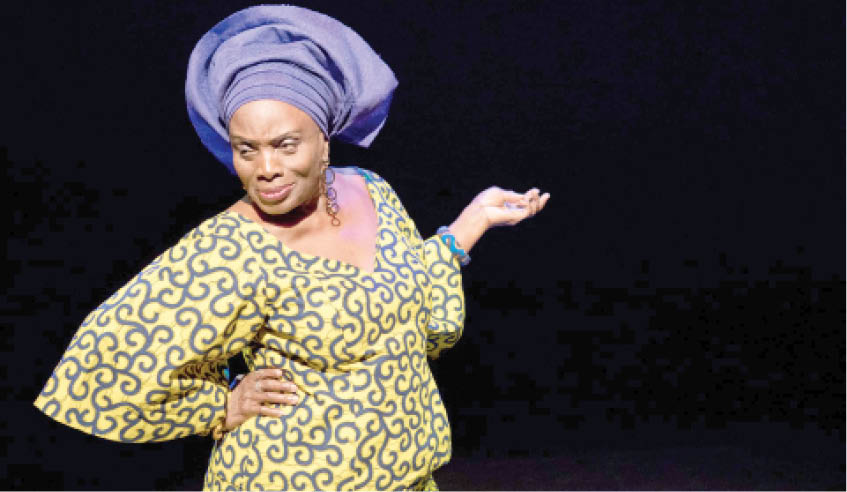REVIEW: ‘Hear Word! Naija Woman Talk True’
‘Hear Word! Naija Woman Talk True’ This agitprop cabaret comprises 10 monologues about resistance and emancipation, based on true stories about the treatment of women in Nigeria. In a week when BBC Radio 4’s Today programme made light of a story about a man punching his wife, it’s a refreshing corrective to see this all-female […]

Taiwo Ajai-Lycett in Hear Word! Naija Woman Talk True. Photo: Gretjen Helene
‘Hear Word! Naija Woman Talk True’
This agitprop cabaret comprises 10 monologues about resistance and emancipation, based on true stories about the treatment of women in Nigeria.
In a week when BBC Radio 4’s Today programme made light of a story about a man punching his wife, it’s a refreshing corrective to see this all-female agitprop cabaret that gives a full-blooded response to sexual inequality in Nigeria. Part of the Edinburgh international festival’s You Are Here season, a strand in which “artists from around the globe invite you to explore where we are now”, director Ifeoma Fafunwa’s show is a collage of monologues and songs performed by a cast of 10 on the theme of women’s rights.
“Hear word” is pidgin English for “listen and comply”, an ironic title for a performance dealing in resistance and defiance. Its short scenes relate true-life stories not just of child abuse, rape and sex trafficking but also of the more insidious ways women are kept in their place. We see actor Joke Silva as a self-styled queen of the market, boldly rejecting an expectation that women should not work outside the home. And we see many instances of women themselves policing their female friends and relatives to ensure they dress demurely, behave discreetly and remain subservient to men.
The Today programme notwithstanding, this consciousness-raising is likely to be more necessary in a patriarchal Nigeria than in the UK, where fourth-wave feminism has its own set of concerns. That cultural difference makes the show less a source of political empowerment than a heartening vision of resistance and emancipation. And that’s all the more the case for its raucous humour, proud sexuality and collective voice of dissent. “I reject all limitations placed on my life expectations,” says actor Omonor in a show that is at once tough and inspirational.
Source: TheGuardian.com
